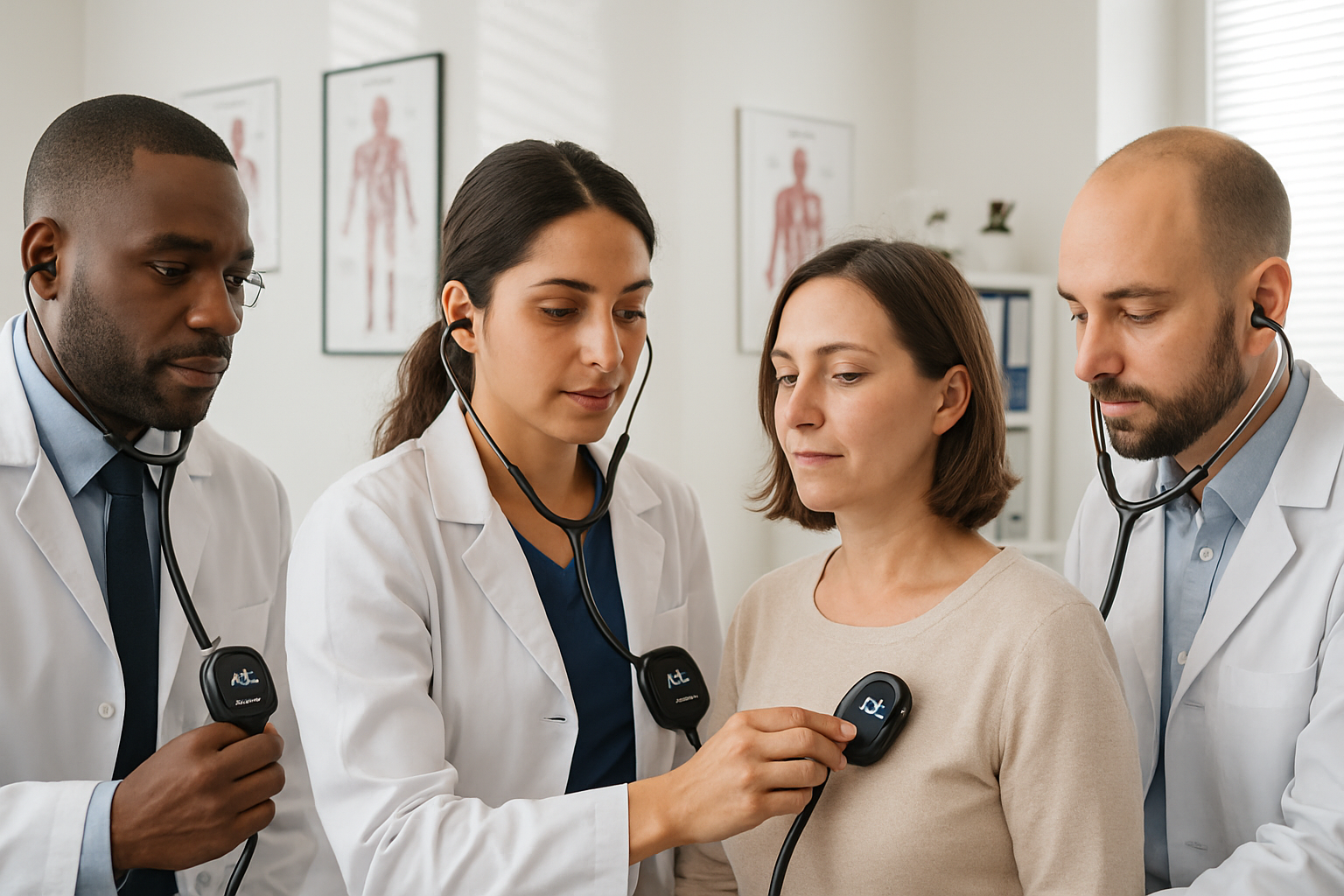Quick Take
- AI stethoscope increased heart failure detection 2.3 times across 205 London GP practices
- Device diagnosed atrial fibrillation 3.5 times more often than traditional methods
- 12,725 patients tracked in Imperial College London’s TRICORDER study
- 70% of GP surgeries stopped regular use after 12 months, revealing adoption challenges
A playing card-sized AI stethoscope developed by California-based Eko Health has delivered breakthrough cardiac detection rates in the largest UK primary care trial to date, though implementation barriers remain significant. — Imperial College London
A groundbreaking AI-powered stethoscope has transformed how doctors detect heart disease in UK general practices. The device increased heart failure diagnoses by 2.3 times during 15-second examinations across London’s primary care network.
The TRICORDER study followed 12,725 patients across 205 London GP practices and found remarkable improvements in detecting three major heart conditions. Heart failure diagnoses jumped 2.3 times higher, atrial fibrillation detection rose 3.5 times, and heart valve disease identification nearly doubled at 1.9 times compared to standard diagnostic methods.
“This tool could be a real game-changer for patients, bringing innovation directly into the hands of GPs,” says Dr. Sonya Babu-Narayan of the British Heart Foundation.
Technology Replaces 200-Year-Old Diagnostic Standard
The playing card-sized device replaces traditional stethoscopes with cloud-connected artificial intelligence. It records subtle heartbeat differences and blood flow patterns that human ears can’t detect while performing electrocardiograms simultaneously.
This breakthrough tackles a critical healthcare challenge. Heart disease kills more people worldwide than any other condition, yet 70% of heart failure cases in the UK go undiagnosed until patients reach emergency rooms. The AI algorithms catch cardiac problems human doctors typically miss during routine checkups, especially atrial fibrillation which often shows no symptoms but dramatically increases stroke risk.
Patients with symptoms like breathlessness, fatigue, or leg swelling received faster, more accurate diagnoses during routine GP visits.
Implementation Challenges Expose Healthcare System Barriers
Despite impressive clinical results, the trial revealed significant integration obstacles. About 70% of GP surgeries stopped using the AI stethoscopes or used them rarely after 12 months, showing healthcare systems need better workflow integration strategies.
The technology also showed diagnostic precision limits. Two-thirds of patients flagged for suspected heart failure didn’t actually have the condition after further testing. This high false-positive rate means the device works best for symptomatic patients rather than routine screening of healthy individuals.
Dr. Sonya Babu-Narayan of the British Heart Foundation calls it “an elegant example of how the humble stethoscope, invented more than 200 years ago, can be upgraded for the 21st century,” emphasizing that “early detection allows for timely treatment, enabling patients to live healthier, longer lives.”
Global Market Expansion and Healthcare Economics
This technology addresses a massive global healthcare challenge affecting over one million people in the UK alone. Early cardiac detection enables timely treatment with life-saving medications before conditions become critical, potentially cutting emergency care costs significantly.
After successful London trials, researchers plan immediate rollouts to GP practices in South London, Sussex, and Wales. The technology, manufactured by California-based Eko Health, positions itself for broader international expansion.
The study received funding from the British Heart Foundation, the National Institute for Health and Care Research, and Imperial Health Charity. Results were presented at the European Society of Cardiology’s annual congress in Madrid, the world’s largest cardiology gathering.
Strategic Healthcare Technology Integration
This AI breakthrough signals broader healthcare digitization trends, creating new market opportunities while addressing critical healthcare delivery challenges. The integration of artificial intelligence with traditional diagnostic tools shows validated pathways for primary care innovation.
Healthcare systems investing in early detection technologies can reduce emergency care costs while improving patient outcomes significantly. The technology’s cloud-based architecture enables rapid scaling across multiple practice locations.
Professor Nicholas Peters from Imperial College London notes, “Our study shows that three heart conditions can now be identified in one sitting. Importantly, this technology is already available to some patients and being widely used in GP surgeries.”
For medical device companies and healthcare investors, this represents a proven pathway for AI integration in primary care settings. The primary challenge lies in ensuring seamless workflow adoption rather than technological capability, as shown by the 70% discontinuation rate after initial enthusiasm.
The AI stethoscope demonstrates how centuries-old medical tools can gain transformational capabilities through smart technology integration, offering both clinical and economic advantages as healthcare costs continue rising globally.






